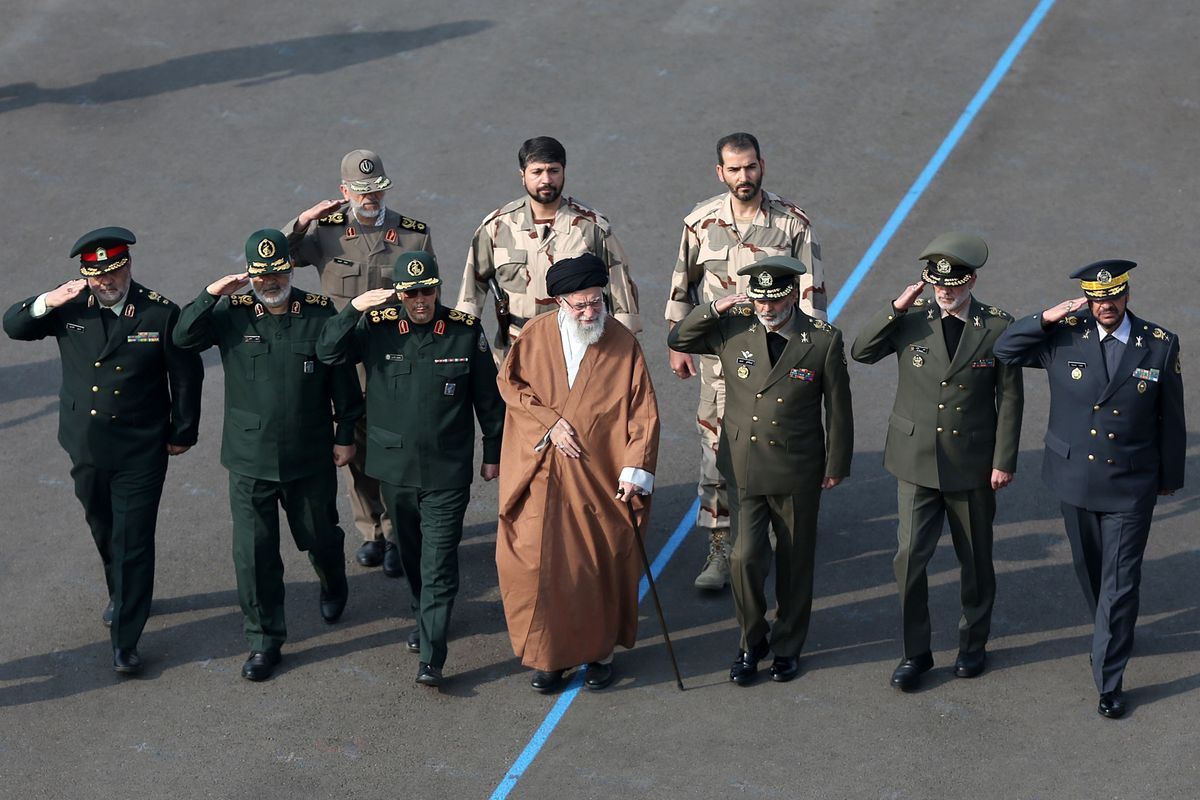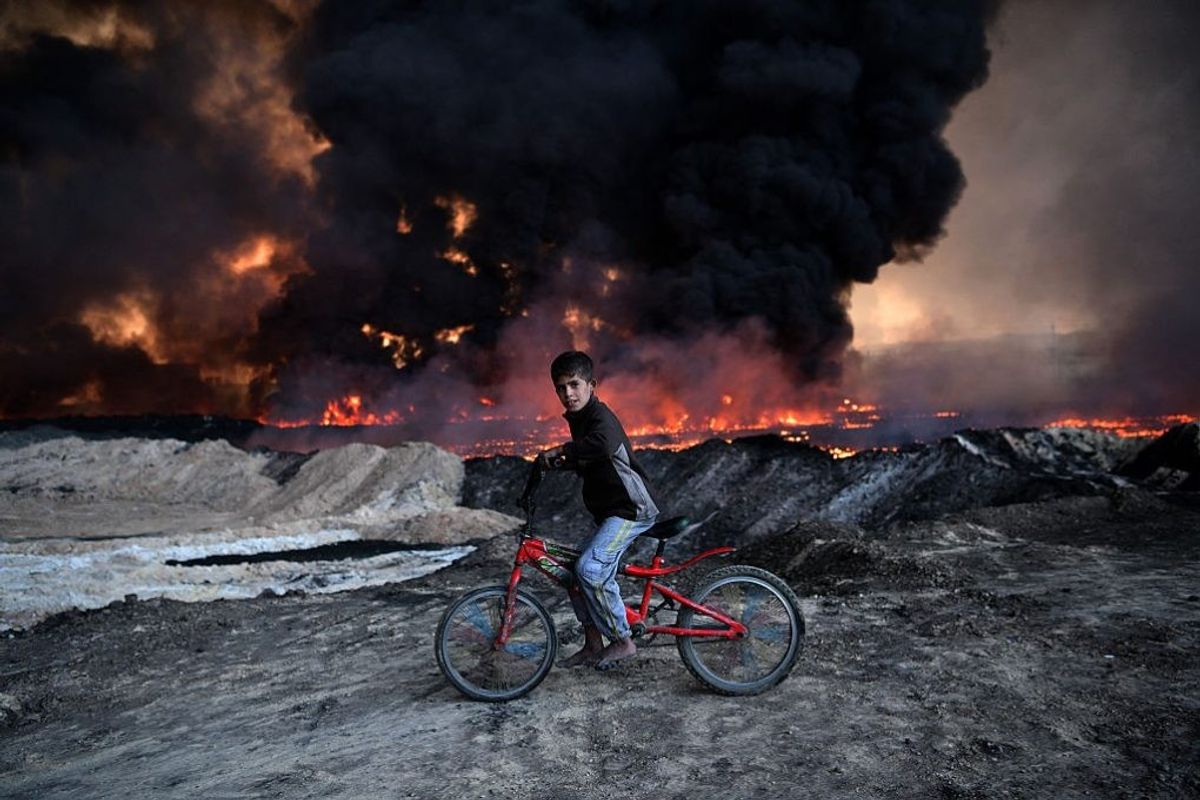The U.S. has had mixed experiences attempting to establish governance, security, public services, economic activity, and political processes after the violent breakdown of a foreign state, either due to deliberate regime change by the U.S. or the collapse of governance following combat operations. The circumstances leading up to these challenges vary greatly. Deliberate regime change and societal transformation were central to plans to defeat Germany and Japan in World War II and to the overthrow of the regimes of Saddam Hussein and the Taliban in Iraq and Afghanistan. After the overthrow of Libyan dictator Muammar Qaddafi in 2011, post-regime reconstruction was famously not even attempted, in part because the U.S. and its international allies did not have troops on the ground. NATO troops, in contrast, did conduct nation building and stability operations after the liberation of Kosovo from Serbian control in 1999.
Despite successes (Germany and Japan) the record of post regime change/collapse has been mixed, particularly recently. This is true whether the effort is conducted by the U.S. virtually alone (Iraq) or as part of a large coalition under international leadership (Afghanistan).
Nonetheless, regime change and subsequent nation/state building abilities remain in the U.S. and international community policy repertoire, either as the deliberate goal (Iraq), the unintended consequence of military action (Kosovo, successfully), or as inadvertent circumstance (East Timor and Eastern Europe post 1989). Thus, most major U.S. foreign policy agencies have both the doctrine and organizational ability to carry out such tasks: the State Department’s often renamed Stability Operations organization, USAID's Office of Transition Initiatives, DOD's Civil Affairs units and, notably, the U.S. Army/USMC Counterinsurgency Manual developed by then Generals Petraeus and Mattis, which places emphasis on, and provides guidelines concerning, basic governmental and economic transformation of populations in ongoing or post conflict situations.
Despite the mixed record, rebuilding states, governments, and societies as a deliberate regime change policy or inadvertent consequence of defeat of a foe remains on the agenda, and thus "rules of the road" are needed.
Rules of the Road
Avoid Nation-Building if Possible: Historically, the most successful U.S. nation-building experience was Japan. Most of the country's governance and societal infrastructure outside of major cities and industry was intact, and by preserving the Emperor, Washington provided an overarching structure and legitimacy for what was truly a partnership with the Japanese people.
Likewise, the non-violent (with a few exceptions) overthrow of communist regimes in Eastern Europe did not necessitate a rapid major reconstruction of state and society dictated from outside. The Communist leadership and senior cadre were replaced along with the ideology and socialist economic structures, but the bureaucracy, sinews of government, and societal integrity all remained, allowing the European Union – assisted by the U.S. – to conduct long term governance and economic development programs building on relatively solid social infrastructure that enjoyed buy-in from most of the populations.
Planning: Planning for Iraq post-2003 "liberation" was grossly inadequate in every respect, and there is little evidence that Washington or NATO even conceived of assuming major roles in Libyan state building after Qaddafi's death. The results are instructive, but as Ike Eisenhower once said, its not the plan but the planning that is important. Planning for the reconstruction of German society, for example, was contentious, fractured and arguably late, with detours like Treasury Secretary Henry Morgenthau's "return to an agrarian culture" proposal. Nevertheless, and despite great physical destruction and uprooting of governance down to the local level, rebuilding Germany quickly became a notable success. Much of the credit belongs to the Germans, but by working through coherent planning processes, the U.S. assigned responsibilities, gathered information, assembled knowledgeable staffs (native German speaker Sergeant Henry Kissinger for example), and worked on feasible end states.
Military in the Lead: Dealing with civilians on mainly civilian endeavors is an odd role for the military, but it has enjoyed repeated success. Three factors contribute to this. First, security and the deterrence or defeat of local violence and incipient insurgency is the first priority of any reconstruction or nation-building effort. Without security, the effort is physically undercut by attacks on local leaders, infrastructure, and economic activities – the building blocks of state building and reconstruction – and politically, by demonstrating incompetence and a potential lack of commitment. Only the outside military force itself can, initially, provide that.
Second, the military has the services – from engineering to finance, transportation, judicial, and medical – that can be used to assist the population directly and train local institutions. Equally important, the military has the streamlined command, control, and communications to deploy and direct these elements for tasks not normally in their mission statements.
Finally, as an institution, once the military recognizes that the U.S. considers post conflict operations an inherent part of its securing "victory," the entire military apparatus and its extraordinary "will to win" roar into action. All this is complemented by the military's ability to move the resident and executive and congressional branches to deploy resources and overcome bureaucratic obstacles far beyond the capacity of civilian agencies.
Don’t Tinker: As described above, most successful post conflict operations were built on local governance infrastructure left in place. Where those infrastructures were torn apart, such as in Iraq with the demolition of the military and Ba'ath Party, two interlinked phenomena occur: the basic organizational tools of any reconstruction are eroded, and a typically competent and patriotic cadre find themselves unemployed, betrayed, resentful, and easily exploit the collapse of governmental organization to mobilize populations against the occupier, politically or violently.
The difficulty with this "rule" is that, for most nations like the U.S., the only time that occupation, regime change, and reconstruction from outside would be undertaken is when there is no other option. Normal means to control a malfeasant state, such as Iran or Milosevic's Serbia, include either limited military action or non-military approaches (sanctions, diplomatic restraints such as the 2015 Iran nuclear deal). Both stop short of trying to eradicate a regime. That goal emerges only when the "normal" means no longer work, a circumstance that typically arises only with totalitarian leaders and regimes that deliberately challenge the world order in a dramatic way. The Kim Jong-un regime in North Korea is one good example.
But the characteristics that make these dictators so ruthless and unbridled internationally also characterize their domestic rule – violent, totalitarian, unpredictable, arbitrary, and run by a small group around the leader. Replace that system and you undercut the "sinews" – however evil – that kept the entire society functioning. Thus, with such state systems, "decapitation" brings the whole state down and our best intentions lie in the rubble.
Avoid Insurgency: This rule follows from the last two. The more tinkering to the system, the more likely you are to have resistance. Resistance undercuts reconstruction and state building physically and politically, and once established, insurgents are incredibly difficult to definitively defeat.
This situation puts pressure on the occupying force, which, now that the evil regime that first inspired regime change has been eliminated, finds itself in a "war of choice" with populations largely motivated by instincts similar to Americans in 1776. This places extraordinary burdens on the occupying force, its government, and home population, as America has experienced repeatedly.
There are three broad ways to prevent insurgency. First, overwhelming power. NATO committed 60,000 troops to Bosnia after the Dayton Accords, a country with a population of only several million. In 2003, the U.S. left behind in Iraq a stabilization force of U.S. and partner troops just over twice the size of the Bosnia force in a country with a ten times bigger population, twenty times bigger land area, and a far more hostile regional environment. This was insufficient.
Second, as noted above, minimize tinkering with the existing political system.
Third, use the international community and region, rather than let them undercut you.
Watch the Neighborhood: Grandiose American plans for regime change and state building have repeatedly come totally or partially apart due to resistance from the neighborhood. For instance, the Chinese – and more limited Russian – intervention when we overthrew the Kim Il Sung government of North Korea in 1950; North Vietnamese, Chinese, and Russian countering of our efforts in South Vietnam; and Pakistan's actions against our efforts in Afghanistan. In each case, outside forces made our nation-building efforts either more difficult or impossible.
Encourage – Don’t Enrage – the International Community: American success in major state and nation-building exercises largely tracks with the extent it enlists international support. Afghanistan in the early years post-2001 is a good example. Such support aids the effort in multiple ways.
First it gives legitimacy to the effort. Second, adding international oversight to U.S. efforts tends to reassure the neighborhood. Third, allied troops and other resources lower the American burden. Finally, all of this reassures and calms an American public fearful that the U.S. will "go it alone".
Remember, We Are Strangers: American involvement in the internal affairs of other countries always suffers from overconfidence and even arrogance. Convinced of our good intentions and the universal legitimacy and appeal of our values, we believe that others think like us. They never do.
Many in both neo-conservative and liberal corners believe we Americans have a natural appeal to and sympathy from local populations suppressed by evil elites. Thus, rather than learn from our experience and apply those lessons, we tend to place blame for the mission’s failure on controversial figures, like Vice President Dick Cheney, and go on to make the same mistakes in the future.
Finally, there are always locals in any situation – like the Iraqi dissident Ahmed Chalabi – who know us far better than we know them and will seek to enlist the mighty American reconstruction machine to serve their own interests. And we fall for this trick again and again.










